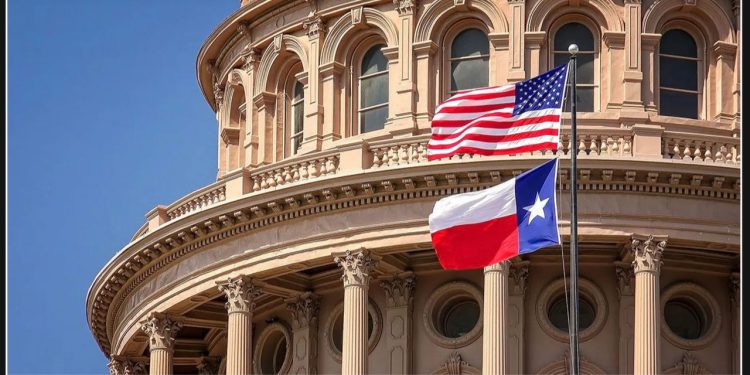The Texas GOP wasted no time in intensifying its assault on transgender individuals as they prefiled a staggering 32 anti-trans bills on the very first day of the prefiling period for the 2025 legislative session. Over the years, Texas has emerged as a breeding ground for such discriminatory legislation, with each session bringing forth increasingly severe measures.
In the previous session alone, the state enacted six anti-trans laws, encompassing a criminal ban on drag (currently facing legal injunction), prohibitions on transgender participation in sports, a ban on youth healthcare, and restrictions on diversity, equity, and inclusion (DEI) efforts. In the wake of a national advertising campaign that poured in hundreds of millions of dollars to vilify transgender individuals, Republican-controlled states are now facing scrutiny regarding their future treatment of transgender residents. Texas GOP lawmakers have left no room for doubt: they are poised to unleash a fresh wave of repressive measures.
Texas Republicans have introduced bills that specifically target transgender individuals, affecting various aspects of their lives. One notable bill, HB1123,, aims to impose stricter regulations on sports participation. Under this proposal, all athletes in the state would be required to undergo a chromosome test, which is both invasive and expensive. This requirement poses significant challenges as many individuals may be unaware of having atypical chromosomes.
Notably, a similar guideline was implemented during the 1996 Olympics, where mandatory chromosomal testing for female athletes resulted in the discovery of eight women with XY chromosomes due to unknown intersex conditions. This revelation sparked widespread backlash, with intersex athletes facing removal threats and emotional distress upon learning their genetic status. Consequently, chromosomal testing was discontinued due to its deeply violating nature, perceived unfairness, and impracticability as a standard.
House Bill 239 in Texas, which mirrors Florida’s adult bathroom ban, seeks to restrict transgender individuals from using facilities in publicly owned buildings. This bill has far-reaching implications, extending its restrictions beyond just the Texas Capitol and courthouses.
It would also impact park bathrooms, rest stops, schools, state-run hospitals, and even major airports like Dallas-Fort Worth, a crucial hub for American Airlines. Notably, Texas has already gained attention for its “bathroom bounty” law in Odessa. This law allows cisgender individuals to sue transgender people for using restrooms and offers a minimum $10,000 payout for successful claims.
The latest round of filings brings back the issue of bounty bills. A bill in Texas, HB 1075, is proposing a provision that could result in individuals performing in drag being sued for a $5,000 bounty. The bill’s definition of “drag” and “perform” is concerning, as it broadly labels anyone “exhibiting a gender that is different from the performer’s gender recorded at birth using clothing, makeup, or other physical markers” as being in “drag.” This definition clearly includes transgender individuals. If a bill like this were to become law, it would undoubtedly lead to the targeting of transgender performers.
In Montana, a similar drag ban resulted in the first person being targeted not being a drag performer, but a transgender public speaker discussing transgender history at a library. Furthermore, such a measure would likely lead to the cancellation of Pride parades across Texas, where transgender individuals and drag performers come together to dance, lip-sync, and celebrate.
Multiple bills are targeting transgender individuals in schools, including books about queer and transgender people. Senate Bill 86 is particularly concerning as it seeks to mandate parental consent for high school students to join a Gay-Straight Alliance or any club that promotes themes related to sexuality, gender, or gender identity. Lambda Legal argues that this requirement violates the Equal Access Act, which states that rules must be applied equally to all student groups and prohibits the singling out of GSAs for discriminatory policies.
Several bills are targeting transgender Texans by seeking to eliminate their legal recognition of their gender identity completely. One such bill is Senate Bill 84, which requires government documents to classify individuals based on their “biological reproductive system.” It defines “female” as someone whose reproductive system can produce ova, without addressing the inclusion of intersex individuals or those with congenital conditions that affect their ability to produce gametes.
Additionally, the bill asserts that the biological differences between sexes are permanent and justifies the creation of separate spaces for social, educational, athletic, or other purposes.
In 2025, the wave of anti-transgender legislation begins with Texas taking the lead. This sets the stage for a challenging year for transgender individuals across the country. Fueled by the confidence gained during the Trump administration, Republican-led states are now ready to intensify their efforts and employ new tactics to target transgender communities. This alarming trend may not be limited to specific states and could potentially gain support nationwide.
While some political analysts and even a few Democratic politicians argue that accepting these laws is a necessary sacrifice for political gains, it is crucial to recognize the true impact: transgender individuals themselves bearing the brunt of the consequences, as their rights and dignity are stripped away. Texas’ unwavering stance serves as a foreboding glimpse into the future that awaits transgender individuals.
